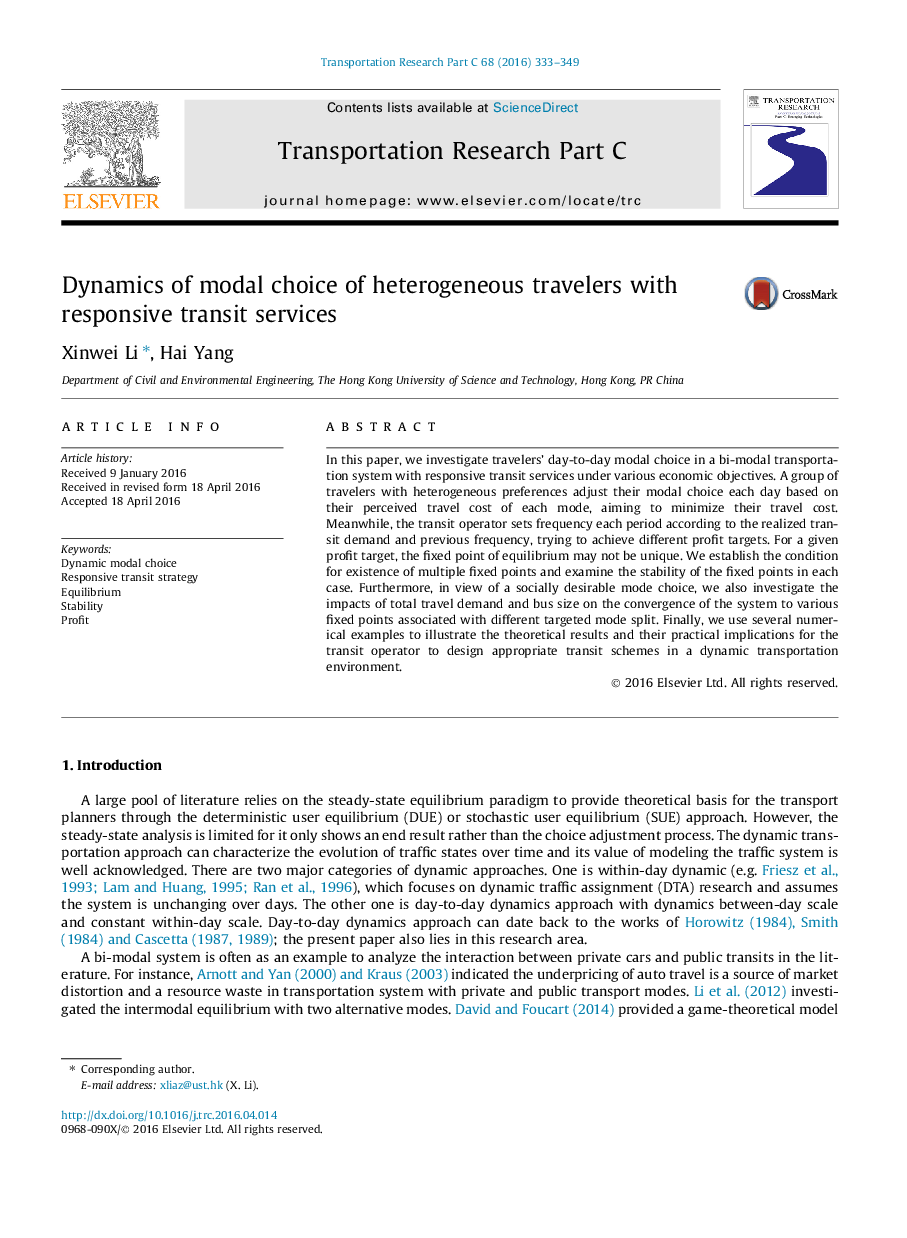| Article ID | Journal | Published Year | Pages | File Type |
|---|---|---|---|---|
| 6936382 | Transportation Research Part C: Emerging Technologies | 2016 | 17 Pages |
Abstract
In this paper, we investigate travelers' day-to-day modal choice in a bi-modal transportation system with responsive transit services under various economic objectives. A group of travelers with heterogeneous preferences adjust their modal choice each day based on their perceived travel cost of each mode, aiming to minimize their travel cost. Meanwhile, the transit operator sets frequency each period according to the realized transit demand and previous frequency, trying to achieve different profit targets. For a given profit target, the fixed point of equilibrium may not be unique. We establish the condition for existence of multiple fixed points and examine the stability of the fixed points in each case. Furthermore, in view of a socially desirable mode choice, we also investigate the impacts of total travel demand and bus size on the convergence of the system to various fixed points associated with different targeted mode split. Finally, we use several numerical examples to illustrate the theoretical results and their practical implications for the transit operator to design appropriate transit schemes in a dynamic transportation environment.
Keywords
Related Topics
Physical Sciences and Engineering
Computer Science
Computer Science Applications
Authors
Xinwei Li, Hai Yang,
